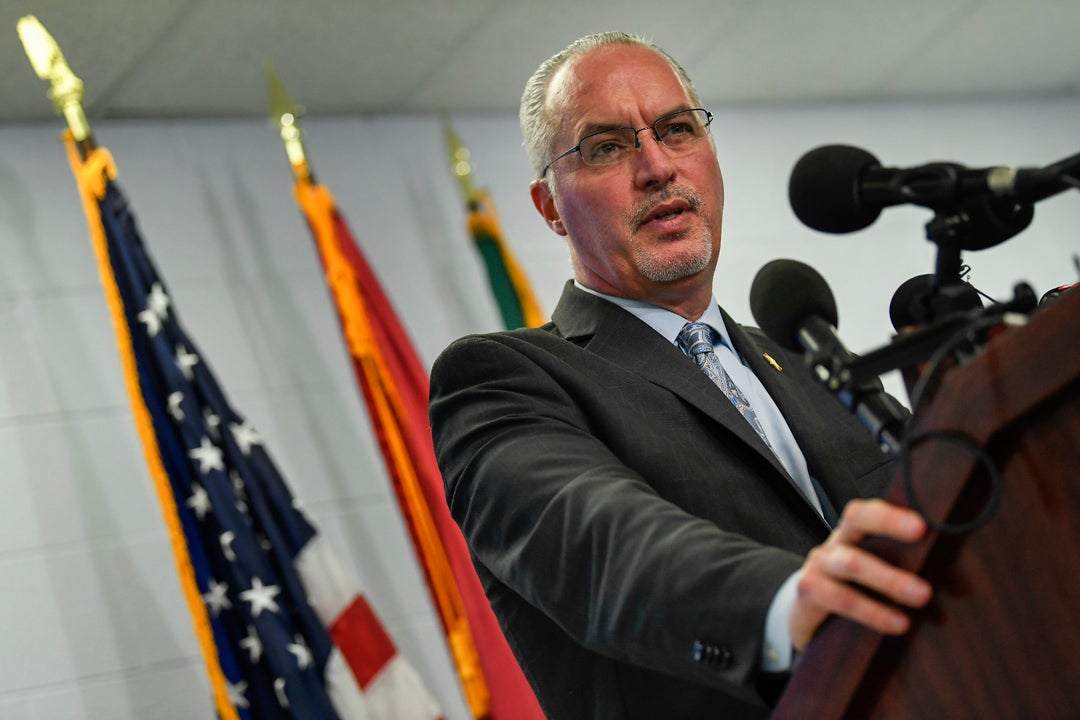CoreCivic accuses Nashville of ‘playing politics,’ will walk away from prison contract with city – Tennessean


Private prison operator CoreCivic plans to walk away from its relationship with Nashville in October, accusing city leaders of “playing politics” and stringing along the company as some look to bring operations in-house.
In a scathing letter sent to Mayor John Cooper, Davidson County Sheriff Daron Hall and the Nashville Metro Council on Monday, CoreCivic’s CEO said the company cannot allow itself to be “used as a punching bag by political opportunists,” as the city debates ending working with the largest for-profit prison company in the U.S.
Though negotiations are still ongoing for a renewed contract, CoreCivic said it will provide a 90-day transition plan that would expire Oct. 4, according to the letter obtained by The Tennessean.
The move by CoreCivic comes after Council members Freddie O’Connell and Emily Benedict announced Thursday they would renew efforts for legislation ending the contract to run the Metro-Davidson County Detention Facility in South Nashville.
Related: Nashville leaders say it’s time to end contract with private prison company CoreCivic
But plans to end the contract with CoreCivic had anticipated the earliest change of hands in two years. The legislation, if approved, would end the contract by July 2022.
The legislation follows Hall submitting new information to the Metro Council last week, indicating that, based on ongoing negotiations with his office, he would be on board running the facility directly. Hall said the move would have a “minimal” fiscal impact to the city as the state has assured Nashville would be reimbursed at a “reasonable” rate for housing inmates.

“While we acknowledge that it is Metro’s prerogative to take steps toward ending our contract, we cannot allow our company, more importantly our employees, to be used as a punching bag by political opportunists who do not value the services we provide,” CoreCivic CEO Damon T. Hininger wrote in the letter. “We recognize the need for an orderly transition of facility operations, but cannot agree to be strung along while Metro takes calculated steps to end our partnership.”
CoreCivic, which has worked with the city for nearly 30 years, was given an emergency contract extension for six months when its contract expired in January. The group was the only company to submit a bid for a new 5-year contract. In May, the city provided the company notice that it intended to award it the contract.
On Thursday, CoreCivic said it received a notice of only a month-long extension to the current contract without an explanation.
“It clearly appears to be connected to the recent publicized efforts to end our contract since that date would allow the proposed legislation to receive the required number of readings before the Metro Council,” Hininger wrote.
Benedict told The Tennessean the one-month extension was simply to have a contract in place while the city finalizes the new contract with CoreCivic.
“Instead of getting the contract back from them signed, they sent us this nasty letter,” she said. “They act like they’re surprised right now, but we’ve been clear in what we’ve been wanting to do.”
CoreCivic spokesperson Amanda Gilchrist told The Tennessean on Monday that the company will “let the letter speak for itself.”

Sheriff to have emergency meeting about letter
In a council budget meeting Monday afternoon, Hall said he was still working to “wrap his mind” around the correspondence, but said it appeared CoreCivic was upset after reading media coverage that was “not favorable to them.”
“We communicated with them the county would not be throwing them out until July 2022, if this bill were to pass, because I wouldn’t be ready personally and I think we have an agreement with council members that that would be earliest we would be ready to do it,” Hall said. “It’s clear in the letter that they feel like that, in the last several days, reputation and everything else has been at risk.”
Image issues: CoreCivic once again at crossroads as stock losses, image problems loom
CoreCivic has operated the 1,300-bed detention center, which houses local state inmates, since it opened in 1992 on Harding Place. The contract is paid by the Tennessee Department of Correction.
The sheriff’s office initially estimated it would receive $18.4 million from the state each year to run the South Nashville facility — compared to the $29.1 million CoreCivic would receive for the same population — because the private company has negotiated a higher reimbursement rate from the state for each inmate it houses.
But last week, Hall said the state has agreed to reimburse the county for “actual” costs. Taking over would about an estimated $5 million initial start-up cost, he said.

The change of operation would not require TDOC approval, according to Dorinda Carter, a spokeswoman for the department. Personnel compensation and other costs of operation are reimbursable to the extent they are determined as reasonable and allowable in accordance with department regulations.
Hall, who said he will have an emergency meeting with his office Tuesday, told council members he needs to “get my handle around the whole situation.”
“I’m concerned about the timing of this,” he said, adding he was not ready to assume control of operations yet.
Pandemic: Tennessee prisons were ‘ticking time bomb’ ahead of COVID-19
Legislation deferred for now
Council members Steve Glover and Tanaka Vercher pushed for Benedict to defer the legislation indefinitely Monday as the city works to figure out the fate of operations at the detention center.
“There’s a lot of layers to this and it’s incumbent upon us and for our sheriff’s department to make sure that they are successful,” Vercher said, adding the letter “rings alarms” and that it is unfortunate that this is the outcome of “a council-led effort.”
Vercher said she hopes the council’s minority caucus will have input on the process.
Benedict agreed to defer but said she will likely bring the legislation back.
“I want to again make sure that everybody is comfortable with it and for taxpayers in particular to understand that it has no impact operationally,” she said. “What was critical to me is the safety of our inmates and the safety of employees.”
CoreCivic lambasted O’Connell and Benedict for “pushing an agenda that’s free of facts and ideologically driven.”

The company hit back at the idea of putting “profits ahead of people,” as they say they’ve implemented programming for inmates, even while experiencing operational losses at the facility.
“Despite these losses, we continued to honor our contractual commitment,” Hininger wrote. He also wrote that CoreCivic has supported some criminal justice reform efforts, including the federal First Step Act.
O’Connell told The Tennessean that CoreCivic’s letter Monday makes clear their priorities.
“In announcing their attention to suddenly abandon operation of the Metro Detention Facility, CoreCivic has made plain that their priority is maintaining an active public relations campaign, not safely housing inmates and joining the important public conversation about decarcerating non-violent offenders and reducing recidivism,” O’Connell said in a statement to The Tennessean.
“Metro Council and other local leaders, on the other hand, will continue to press for reforms that both improve public safety and deliver an inclusive, equitable city moving away from mass incarceration.”
Cutting ties would be ‘hard-fought’ victory for advocates
Rotten to the Core, a Nashville coalition that has demanded that Metro cuts ties with CoreCivic, called efforts for the city to take over operations a “huge win for the people of Nashville.”
In a statement, the group said though ending the city’s relationship with the group would be a “hard-fought” victory, the work is far from over.

“We will not be finished until CoreCivic and every heartless corporation whose business model is based on making money on human suffering and perpetuating slavery is shut down,” the coalition said in a statement. “The divesting from CoreCivic in Nashville, the home of its former headquarters, is a big win for the people who have been fighting against the blatant prioritizing of profit over people. But it’s not the culmination of our fight because we know that the human beings caged in our community deserve better.”
Theeda Murphy, a community activist and member of Community Oversight Now, told The Tennessean she was pleased to hear about the contract ending and that Hall conceded to the group’s position.
Rotten to the Core has continually argued that the city has mechanisms, under state law, to allow for the divestment from CoreCivic.
“There was never going to be any impact on the budget because the state pays all necessary expenses regardless of whether they are paying CoreCivic or paying DCSO directly,” Murphy said in a statement.
Yihyun Jeong covers politics in Nashville for USA TODAY NETWORK – TENNESSEE. Reach her at yjeong@tennessean.com and follow her on Twitter @yihyun_jeong.
Published 8:53 PM EDT Jul 6, 2020
